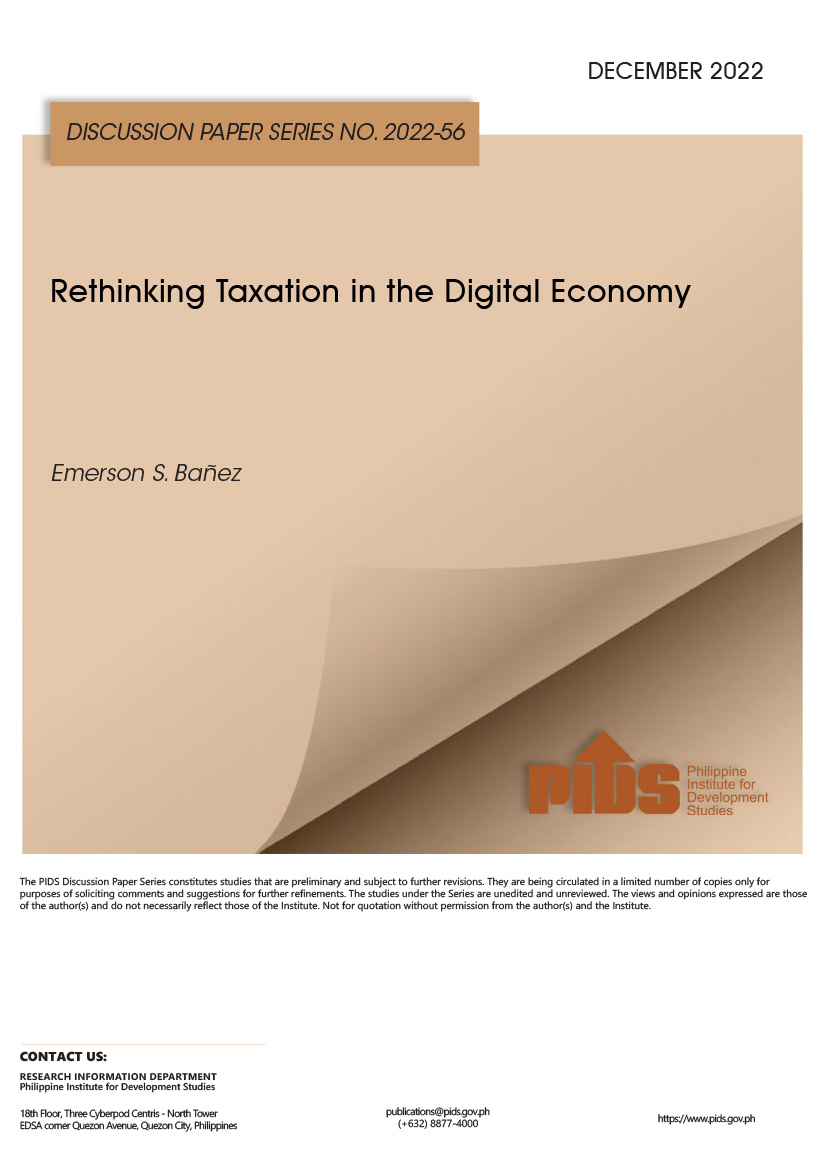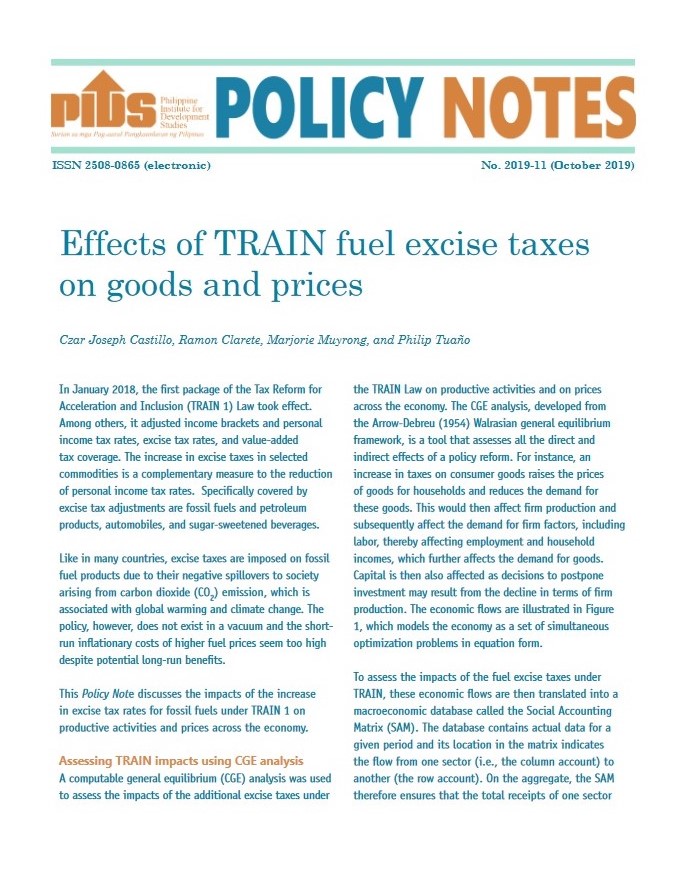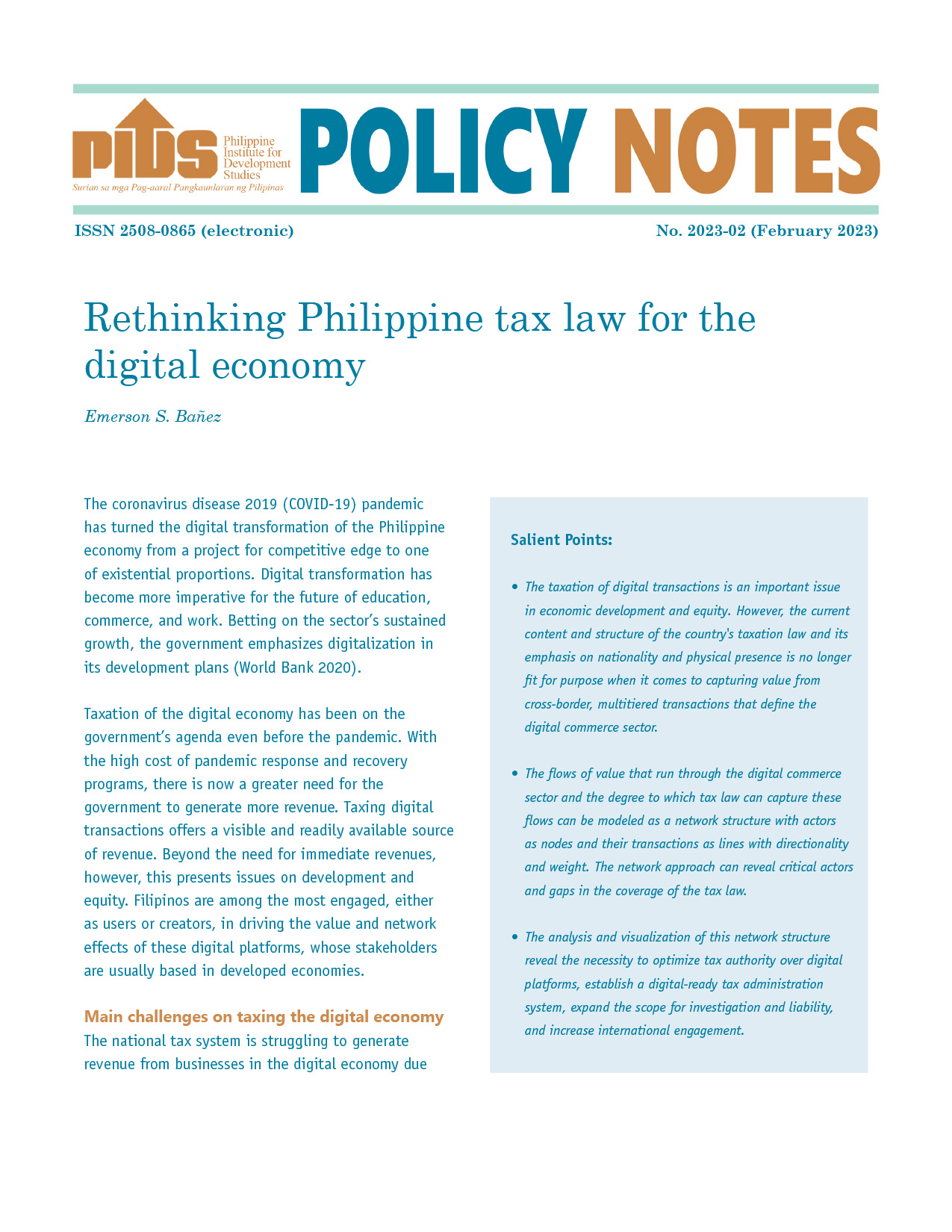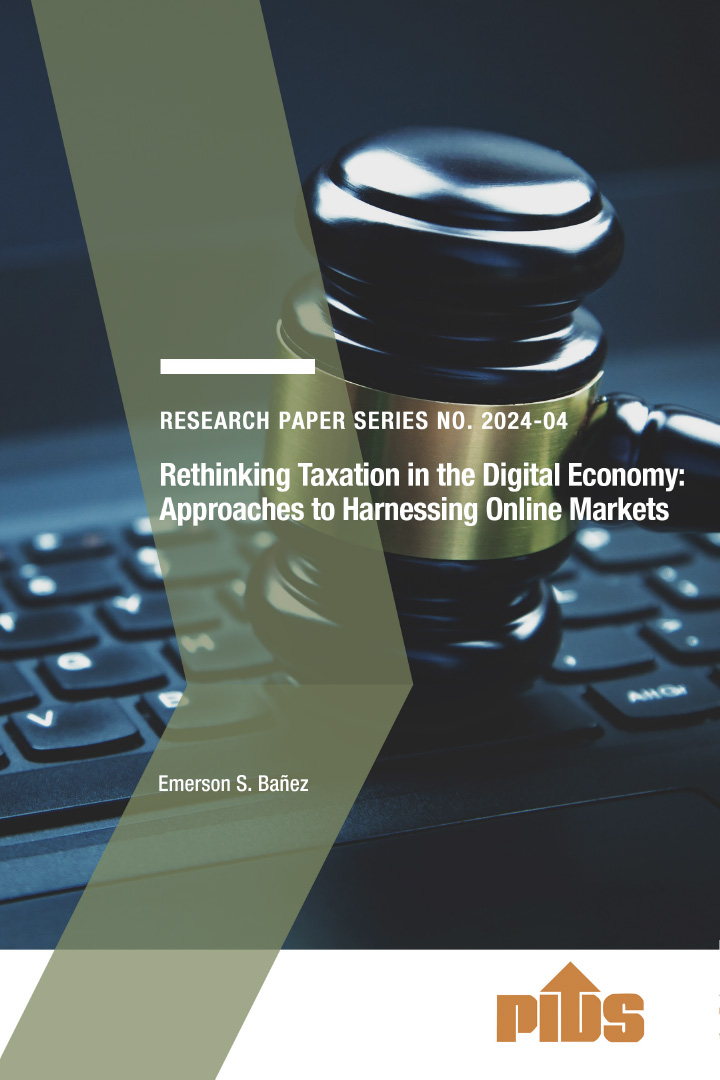The study aims to evaluate the country’s legal framework for taxing digital transactions, specifically, the extent to which the provisions of the law can map onto the value of digital markets. Based on the findings on the structure of the digital commerce value chain and its possible interactions with both current and proposed tax regimes, four policy prescriptions are recommended: (1) to optimize existing tax authority over platforms, (2) to establish a digital-ready tax administration, (3) to expand the scope for investigation and liability, and (4) to promote engagement at the international level. Nonresident providers have gained the most from digital markets while minimizing the tax impact of their activities. Thus, the Philippines should continue to explore multilateral options for reallocating taxing rights and addressing base erosion and profit shifting. These include regional tax treaties and the OECD framework treaty. Efforts at negotiating and crafting the provisions should consider the Philippines’ trading power relative to other countries and its comparative ability to exercise jurisdiction.
Comments to this paper are welcome within 60 days from the date of posting. Email publications@pids.gov.ph.
Citations
This publication has been cited 7 times
- De Leon, Nyah Genelle. 2023. Philippines needs updated tax laws for the digital economy — PIDS. Philippine Star.
- Desiderio, Louella. 2022. Payment portals eyed as tax conduit for online sellers. The Philippine Star.
- Domingo, Ronnel. 2023. PH losing out on tax collections from digital transactions, says PIDS. Inquirer.
- Jocson, Luisa Maria Jacinta. 2023. Tax system being outmaneuvered by digital companies. BusinessWorld.
- Newsbytes. 2023. Expert: Improve PH tax law to capture revenues from digital transactions. Newsbytes.
- Newsbytes PH. 2023. Complexity of digital economy poses challenge for tax collection, says UP prof. Newsbytes PH.
- People's Tonight . 2023. Improve PH tax law to capture revenues from digital transactions. Journal Online .













